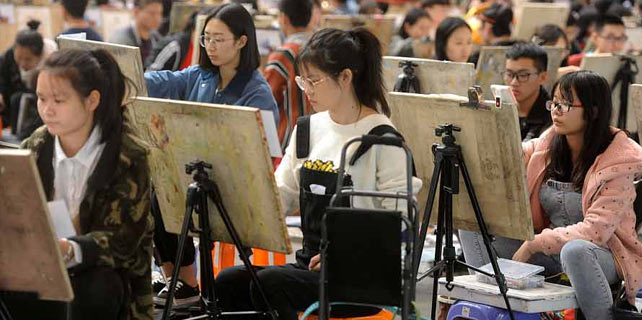Sinopec plans US projects ahead of Trump's visit
SINGAPORE-China's State oil major Sinopec is evaluating two projects in the United States that could boost Gulf Coast crude oil exports and also expand storage facilities in the Caribbean, two people familiar with the matter said on Tuesday, with US President Donald Trump set to visit Beijing next week.
With US-China energy trade likely to feature prominently during Trump's visit, the people said one of the projects could see Sinopec partnering with US commodities trader Freepoint Commodities and US private equity firm ArcLight Capital Partners.
The trio is mulling building a pipeline to move shale oil from the Permian basin in Texas to the US Gulf Coast for export, the people said.
This project also includes the construction of a terminal that can load 2 million barrels of crude onboard a Very Large Crude Carrier (VLCC), they said. This will reduce a big chunk of logistics costs incurred for US crude exports, making the oil more competitive in Asia, the sources said.
ArcLight and Freepoint are among the US energy and commodities firms that will make up a major part of a business delegation visiting Beijing when Trump goes to China next week.
Sinopec and the US firms have also been exploring an expansion of oil storage at Limetree Bay (LB) Terminals in St Croix, US Virgin Islands, in the Caribbean, and restarting an idled refinery at the same site, the people said. They declined to be identified because they were not authorized to speak to media.
The Chinese company, which is Asia's largest oil refiner, ArcLight and Freepoint, declined to comment.
Taking stakes in oil infrastructure is part of Sinopec's ambition to expand its global trading profile. Sinopec already owns part of a Saudi refinery at the Red Sea, although a recent attempt to buy a Chevron refinery in South Africa's Cape Town was thwarted by Glencore.
"There is room for energy cooperation between China and the United States, but the projects will have to be commercially viable before the companies reach any agreement," one of the people familiar with the matter said.
Reuters









